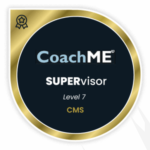 The way we address ourselves, think about ourselves and talk to and about ourselves matters. Language has the power to both communicate and shape our thoughts. We use language to express our thinking—but our language can also cause subtle shifts in our thinking. When I allow stray thoughts to linger unexamined and unchallenged in my mind, I run the risk of developing beliefs connected to those thoughts. These beliefs may serve to strengthen me, or these beliefs may undermine me.
The way we address ourselves, think about ourselves and talk to and about ourselves matters. Language has the power to both communicate and shape our thoughts. We use language to express our thinking—but our language can also cause subtle shifts in our thinking. When I allow stray thoughts to linger unexamined and unchallenged in my mind, I run the risk of developing beliefs connected to those thoughts. These beliefs may serve to strengthen me, or these beliefs may undermine me.
For example, if a negative thought pops up in my mind, something like I’m not a good public speaker, and I don’t take note of and examine this thought, it may take root and seep into my belief system. Suddenly, I start to say things to myself that align with this negative thought: I’m not a good public speaker and I’m going to fail when sharing my business plan during next week’s meeting. Notice how my self-talk has now shifted from a stray, negative thought to a new (and nasty!) core belief: I’m not a good public speaker and I’m going to fail.
This negative core belief, left unchecked, will next generate some pretty nasty feelings about myself and my efficacy—without me even being aware of what’s happening in the background of my mind. I’ll catch myself feeling “less than” or struggling with a lack of confidence and these feelings quickly impact my actions and behaviors. My typically fluent speaking style may morph into a series of “ums, glubs,” and “you knows”— leaving me feeling more vulnerable and less capable of doing what for me is a routine task—communicating, interacting and presenting!
How do we flip this around? By telling ourselves the truth. By identifying and examining those stray thoughts before they sneak into our belief systems. I think of it as a “truth funnel.” Our job is to be aware of thoughts that strike us—becoming stewards of our thinking. Thought gatekeepers if you will. We don’t need to judge ourselves for negative thinking—just become adept and honest acknowledgers of our thinking. And then screen appropriately.
When a negative thought emerges, acknowledge it. Don’t try to ignore it, bury it under happier thoughts, or push it away. Start by simply acknowledging it. I address mine: “I see you, failure.” Then I screen it, by asking myself a series of questions about that negative thought designed to examine the veracity of the thought:
- Is it true?
- How do I know it is true? What data do I have that supports my answer?
- Who do I become when I believe this thought is true?
- Who would I become if I believed the opposite to be true?
- What truth will I choose to replace this limiting belief?
Centering ourselves on truth is a powerful way to shape our days, our weeks and our lives. Much has been written about the need for defining personal values, seeking wisdom, and clarifying truth. The Old Testament describes the grounding nature of wisdom beautifully in this excerpt found in the book of Proverbs 3:15-18:
She is more precious than jewels;
And nothing you desire compares with her.
Long life is in her right hand;
In her left hand are riches and honor.
Her ways are pleasant ways, and all her paths are peace.
She is a tree of life to those who take hold of her, and happy are all who hold her fast.
Starting your day with time to reflect, read, meditate and refocus yourself on wisdom and truth is a powerful practice. My personal daily practices involve journaling, reading scripture, praying and reflecting by writing. This helps clear my brain of any lingering negative stray thoughts and begin my day with a sense of direction, power, and purpose. I then move onto practical matters, reviewing my schedule and deciding in advance what success will look like at the end of the day.
My end of the day routine is also designed to focus on truth and ferret out any limiting beliefs that may have crept in unannounced. I spend a few minutes reflecting on what went well today for my coaching sessions, meetings and encounters. I level up by asking myself what I did to contribute to that success—and by naming the strengths and attributes I brought to each engagement. Reviewing this list of strengths and attributes, I then commit to using what I have learned today to strengthen my actions and deepen my engagements tomorrow.
Focusing on what went well and what I did to contribute to that success leaves no room for faulty thinking or negative self-talk. Rather, it harnesses the grounding power of truth and wisdom. Leaning on the gifts and talents with which I’ve been uniquely provided fuels and energizes me to move forward.
Our thinking shapes what we believe to be true about ourselves. Our beliefs generate how we feel about ourselves—and the way we feel directly influences our behavior—every single day. Today I invite you to think about your thinking. Notice your self-talk. Redirect when necessary, using these tools to generate a more powerful mindset by focusing on what you know to be true.














Leave a Reply